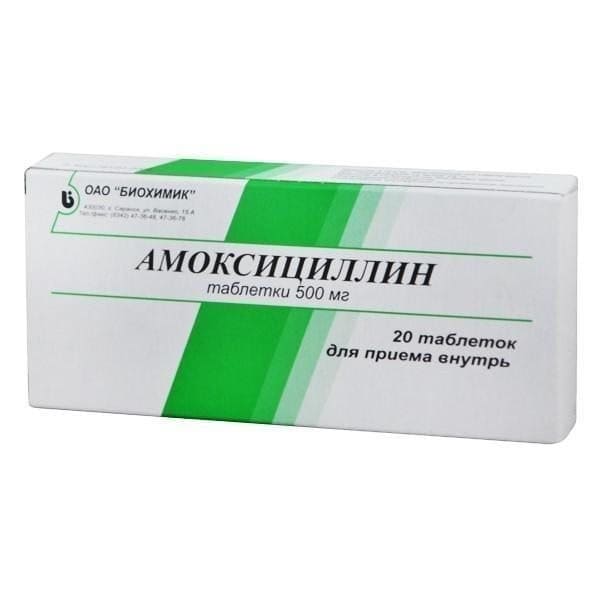You have no items in your shopping cart.

Sku:
pharmachologic effect
Antibiotic of a group of semisynthetic penicillins of a wide spectrum of action. It is a 4-hydroxyl analogue of ampicillin. Has a bactericidal effect. It is active against aerobic gram-positive bacteria: Staphylococcus spp. (with the exception of strains producing penicillinase), Streptococcus spp .; aerobic Gram-negative bacteria: Neisseria gonorrhoeae, Neisseria meningitidis, Escherichia coli, Shigella spp., Salmonella spp., Klebsiella spp.
Amoxicillin is resistant to microorganisms that produce penicillinase.
In combination with metronidazole, it shows activity against Helicobacter pylori. It is believed that amoxicillin inhibits the development of Helicobacter pylori resistance to metronidazole.
Between amoxicillin and ampicillin there is cross-resistance.
The spectrum of antibacterial action expands with simultaneous use of amoxicillin and clavulanic acid beta-lactamase inhibitor. In this combination, amoxicillin activity increases with respect to Bacteroides spp., Legionella spp., Nocardia spp., Pseudomonas (Burkholderia) pseudomallei. However, Pseudomonas aeruginosa, Serratia marcescens and many other Gram-negative bacteria remain resistant.
Indications
For use in the form of monotherapy and in combination with clavulanic acid: infectious and inflammatory diseases caused by sensitive microorganisms, incl. bronchitis, pneumonia, tonsillitis, pyelonephritis, urethritis, gastrointestinal infections, gynecological infections, infectious diseases of the skin and soft tissues, listeriosis, leptospirosis, gonorrhea.
For use in combination with metronidazole: chronic gastritis in the phase of exacerbation, peptic ulcer of the stomach and duodenum in the acute phase associated with Helicobacter pylori.